PRODUCT DETAILS
| DICALCIUM PHOSPHATE DIHYDRATE Basic information |
| Product Name: |
DICALCIUM PHOSPHATE DIHYDRATE |
| Synonyms: |
Calciumhydrogenphosphate,dih;Calciumhydrogenphosphate,medicinal;Phosphoricacid,calciumsalt(1:1),dihydrate;Calcium hydrogen phosphate,agricultural;Calcii hydrogenophosphas dihydricus, Calcium hydrogen phosphate dihydrate;calcium phosphate,secondary;dicalciurn phosphate;CALCIUM PHOSPH |
| CAS: |
7789-77-7 |
| MF: |
CaH5O6P |
| MW: |
172.09 |
| EINECS: |
616-542-1 |
| Product Categories: |
Food Additives |
| Mol File: |
7789-77-7.mol |
 |
| |
| DICALCIUM PHOSPHATE DIHYDRATE Chemical Properties |
| Melting point |
109°C -H?O |
| density |
2.31 |
| storage temp. |
Inert atmosphere,Room Temperature |
| solubility |
Practically insoluble in water and in ethanol (96 per cent). It dissolves in dilute hydrochloric acid and in dilute nitric acid. |
| form |
Solid |
| color |
White to almost white |
| Water Solubility |
Slightly soluble in water. Soluble in dilute hydrochloric, nitric, and acetic acid. Insoluble in alcohol |
| Stability: |
Stable. Incompatible with acids. |
| InChIKey |
XAAHAAMILDNBPS-UHFFFAOYSA-L |
| CAS DataBase Reference |
7789-77-7(CAS DataBase Reference) |
| Hazard Codes |
Xi |
| Risk Statements |
36/37/38 |
| Safety Statements |
26-36 |
| WGK Germany |
1 |
| TSCA |
Yes |
| HS Code |
28352590 |
| |
| DICALCIUM PHOSPHATE DIHYDRATE Usage And Synthesis |
| Chemical Properties |
white crystalline solid |
| Chemical Properties |
Dibasic calcium phosphate dihydrate is a white, odorless, tasteless powder or crystalline solid. It occurs as monoclinic crystals. |
| Uses |
Replenisher (calcium); pharmaceutic aid (tablet base). |
| Uses |
Dicalcium Phosphate, Dihydrate is a source of calcium and phosphorus that also functions as a dough conditioner and bleaching agent. It functions as a dough conditioner in bakery products, as a bleaching agent in flour, as a source of calcium and phosphorus in cereal products, and as a source of calcium for alginate gels. It contains approximately 23% calcium. It is practically insoluble in water. It is also termed dibasic calcium phosphate, dihydrate and calcium phosphate dibasic, hydrous. It is used in dessert gels, baked goods, cereals, and breakfast cereals. |
| Uses |
Dicalcium phosphate dihydrate is only slightly soluble at ordinary temperatures of mixing and holding doughs and batters. As a result, it does not release acidity for reaction with soda until late in the baking stage, when the temperature reaches 135 to 140°F. Since DCP·2H20 does not begin to react below 135°F, and the interior structure of a baked product begins to firm at about 160°F, a product that bakes rapidly may not provide sufficient time for complete release of all the C02. DCP·2H2 0, therefore, cannot be used in biscuits, pancakes or any baked product that is completely baked in less than 20 min.
Dicalcium phosphate dihydrate is seldom used by itself in leavening systems but is usually combined with fasterreacting acidic phosphates. Its major applications are in cake mixes, frozen bread doughs, and other products requiring a half hour or more to complete baking. It has a low neutralizing value, and therefore more DCP·2H20 is required to neutralize a given amount of soda than for other phosphate-leavening acids. |
| Production Methods |
Calcium phosphates are usually manufactured by reacting very pure phosphoric acid with calcium hydroxide, Ca(OH)2 obtained from limestone, in stoichiometric ratio in aqueous suspension followed by drying at a temperature that will allow the correct hydration state to be achieved. After drying, the coarse-grade material is obtained by means of a classification unit; the fine particle-size material is obtained by milling. |
| Brand name |
CalStar (FMC); D.C.P. (Parke-Davis). |
| Pharmaceutical Applications |
Dibasic calcium phosphate dihydrate is widely used in tablet formulations both as an excipient and as a source of calcium and phosphorus in nutritional supplements. It is one of the more widely used materials, particularly in the nutritional/health food sectors. It is also used in pharmaceutical products because of its compaction properties, and the good flow properties of the coarsegrade material. The predominant deformation mechanism of dibasic calcium phosphate coarse-grade is brittle fracture and this reduces the strain-rate sensitivity of the material, thus allowing easier transition from the laboratory to production scale. However, dibasic calcium phosphate dihydrate is abrasive and a lubricant is required for tableting, for example about 1% w/w of magnesium stearate or about 1% w/w of sodium stearyl fumarate is commonly used.
Two main particle-size grades of dibasic calcium phosphate dihydrate are used in the pharmaceutical industry. The milled material is typically used in wet-granulated, roller-compacted or slugged formulations. The ‘unmilled’ or coarse-grade material is typically used in direct-compression formulations.
Dibasic calcium phosphate dihydrate is nonhygroscopic and stable at room temperature. However, under certain conditions of temperature and humidity, it can lose water of crystallization below 1008℃. This has implications for certain types of packaging and aqueous film coating since the loss of water of crystallization appears to be initiated by high humidity and by implication high moisture vapor concentrations in the vicinity of the dibasic calcium phosphate dihydrate particles.
Dibasic calcium phosphate dihydrate is also used in toothpaste and dentifrice formulations for its abrasive properties. |
| Safety |
Dibasic calcium phosphate dihydrate is widely used in oral pharmaceutical products, food products, and toothpastes, and is generally regarded as a nontoxic and nonirritant material. However, oral ingestion of large quantities may cause abdominal discomfort. |
| storage |
Dibasic calcium phosphate dihydrate is a nonhygroscopic, relatively stable material. However, under certain conditions the dihydrate can lose water of crystallization. This has implications for both storage of the bulk material and coating and packaging of tablets containing dibasic calcium phosphate dihydrate.
The bulk material should be stored in a well-closed container in a cool, dry place. |
| Purification Methods |
Crystallise it from a near-saturated solution in 50% aqueous reagent grade phosphoric acid at 100o by filtering through fritted glass and cooling to room temperature. The crystals are filtered off, and this process is repeated three times using fresh acid. For the final crystallisation the solution is cooled slowly with constant stirring to give thin plate crystals that are filtered off on a fritted glass funnel, washed free of acid with anhydrous acetone and dry in a vacuum desiccator [Egan et al.J Am Chem Soc 78 1811 1956]. |
| Incompatibilities |
Dibasic calcium phosphate dihydrate should not be used to formulate tetracycline antibiotics. Dibasic calcium phosphate dihydrate has been reported to be incompatible with indomethacin, aspirin, aspartame, ampicillin, cephalexin, and erythromycin. The surface of dibasic calcium phosphate dihydrate is alkaline and consequently it should not be used with drugs that are sensitive to alkaline pH. |
| Regulatory Status |
GRAS listed. Accepted as a food additive in Europe. Included in the FDA Inactive Ingredients Database (oral capsules and tablets). Included in nonparenteral medicines licensed in Europe. Included in the Canadian List of Acceptable Non-medicinal Ingredients. |
| |
| DICALCIUM PHOSPHATE DIHYDRATE Preparation Products And Raw materials |
|
|
|
|
|
|
|
|
About Our Group
Leader Biochemical Group is a large leader incorporated industry manufacturers and suppliers of advanced refined raw materials From the year of 1996 when our factory was put into production to year of 2020, our group has successively invested in more than 52 factories with shares and subordinates.We focus on manufacture Pharm & chemicals, functional active ingredients, nutritional Ingredients, health care products, cosmetics, pharmaceutical and refined feed, oil, natural plant ingredients industries to provide top quality of GMP standards products.All the invested factories' product lines cover API and intermediates, vitamins, amino acids, plant extracts, daily chemical products, cosmetics raw materials, nutrition and health care products, food additives, feed additives, essential oil products, fine chemical products and agricultural chemical raw materials And flavors and fragrances. Especially in the field of vitamins, amino acids, pharmaceutical raw materials and cosmetic raw materials, we have more than 20 years of production and sales experience. All products meet the requirements of high international export standards and have been recognized by customers all over the world. Our manufacture basement & R&D center located in National Aerospace Economic & Technical Development Zone Xi`an Shaanxi China. Now not only relying on self-cultivation and development as well as maintains good cooperative relations with many famous research institutes and universities in China. Now, we have closely cooperation with Shanghai Institute of Organic Chemistry of Chinese Academy of Science, Beijing Institute of Material Medical of Chinese Academy of Medical Science, China Pharmaceutical University, Zhejiang University. Closely cooperation with them not only integrating Science and technology resources, but also increasing the R&D speed and improving our R&D power. Offering Powerful Tech supporting Platform for group development. Keep serve the manufacture and the market as the R&D central task, focus on the technical research. Now there are 3 technology R & D platforms including biological extract, microorganism fermentation and chemical synthesis, and can independently research and develop kinds of difficult APIs and pharmaceutical intermediates. With the strong support of China State Institute of Pharmaceutical Industry (hereinafter short for CSIPI), earlier known as Shanghai Institute of Pharmaceutical Industry (SIPI), we have unique advantages in the R & D and industrialization of high-grade, precision and advanced products. Now our Group technical force is abundant, existing staff more that 1000 people, senior professional and technical staff accounted for more than 50% of the total number of employees, including 15 PhD research and development personnel, 5 master′ S degree in technical and management personnel 9 people. We have advanced equipment like fermentation equipment and technology also extraction, isolation, purification, synthesis with rich production experience and strict quality control system, According to the GMP required, quickly transforming the R&D results to industrial production in time, it is our advantages and our products are exported to North and South America, Europe, Middle East, Africa, and other five continents and scale the forefront in the nation, won good international reputation. We believe only good quality can bring good cooperation, quality is our key spirit during our production, we are warmly welcome clients and partner from all over the world contact us for everlasting cooperation, Leader will be your strong, sincere and reliable partner in China.
Our Group profiles
Our Factories production lines
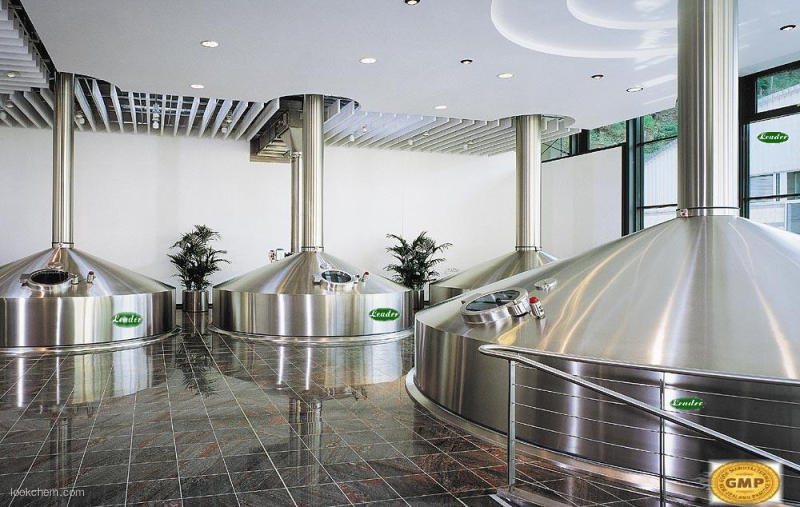
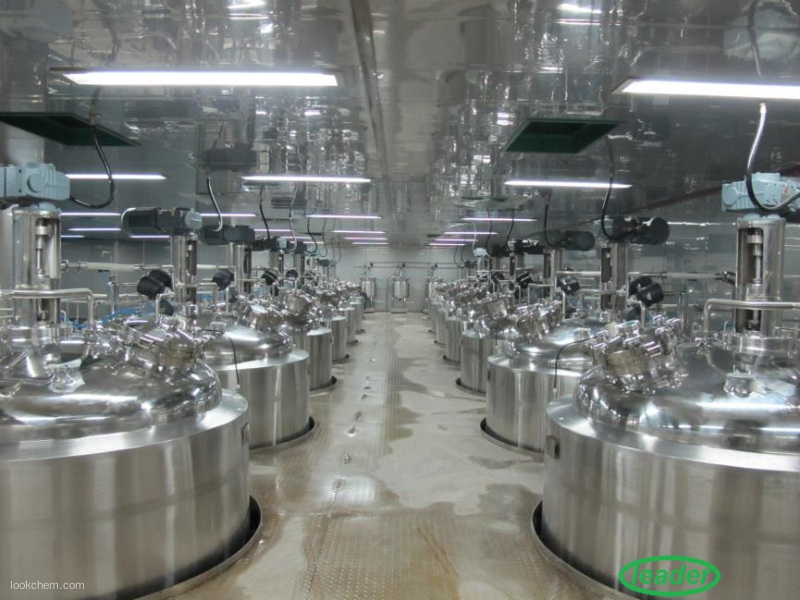
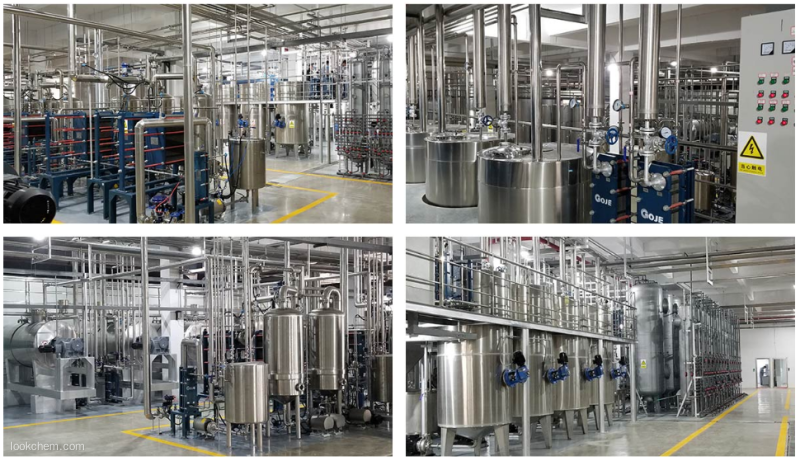
Our Factories R&D ability

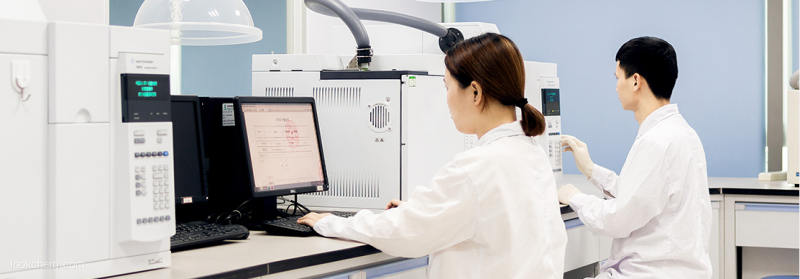
Our Factories warehouse
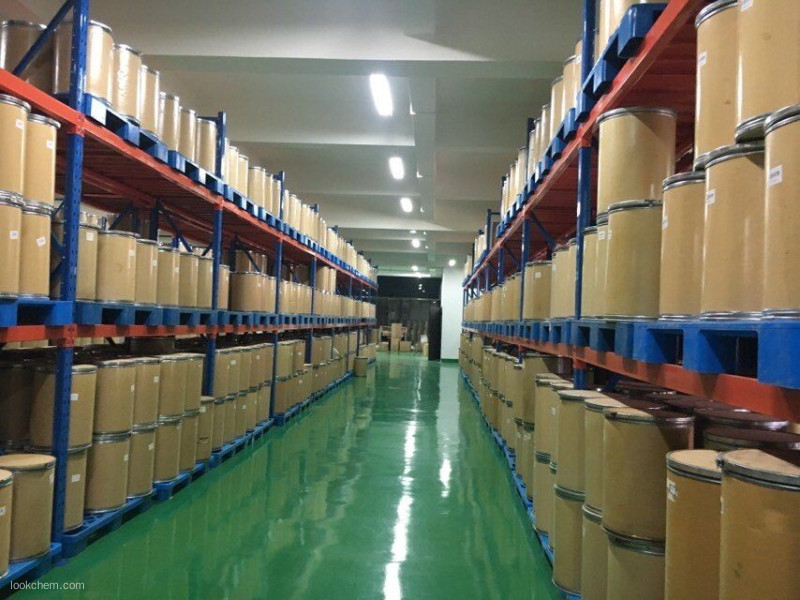
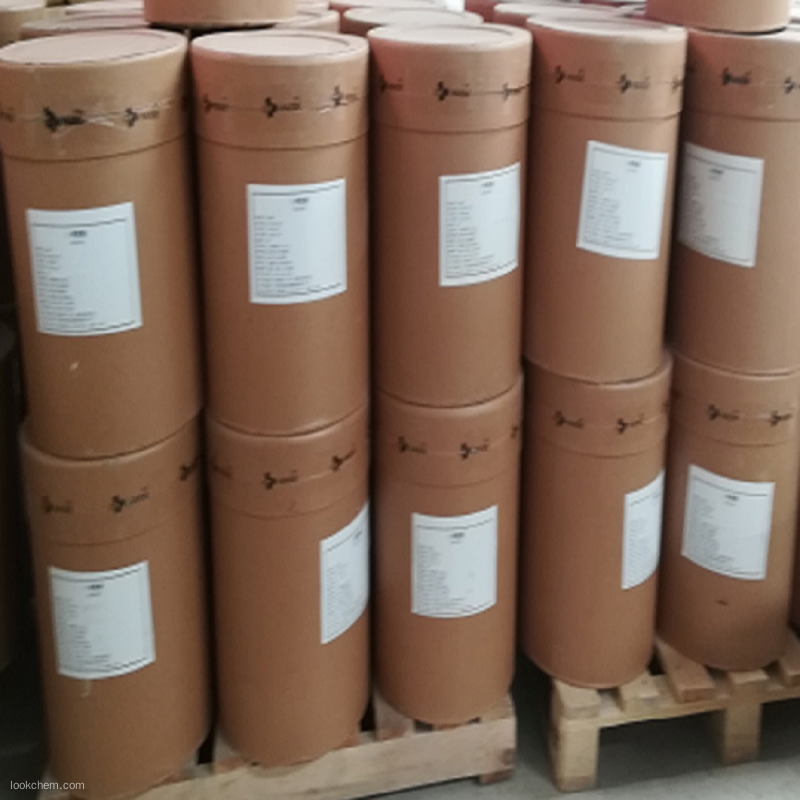


 Premiumsupplier
Premiumsupplier 



